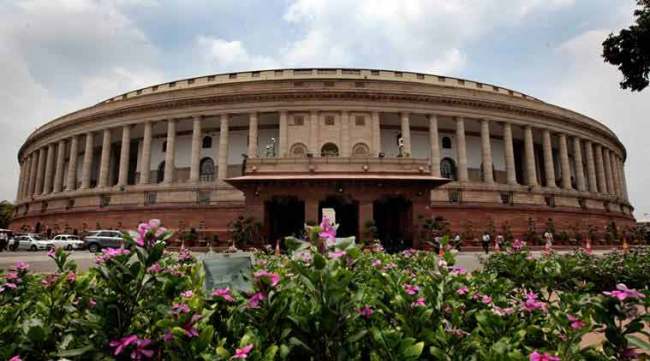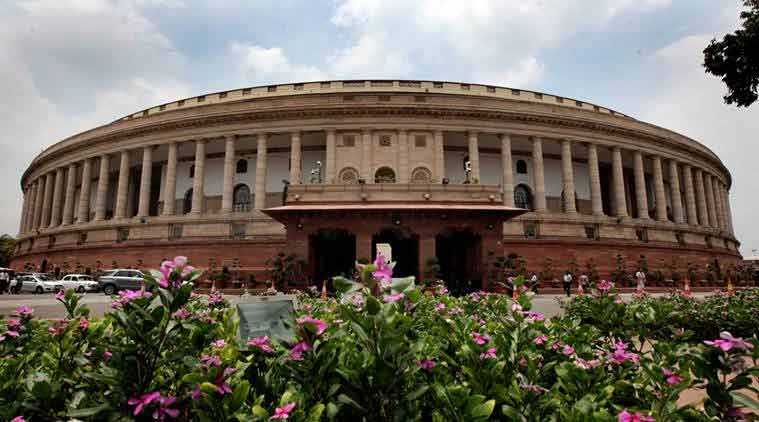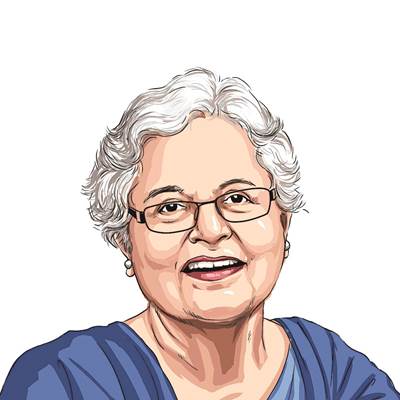Opinion Inside track: Scramble for seat
Since the BJP won 312 of the 403 seats in Uttar Pradesh, it is expected to win at least eight seats. There is speculation whether Jaya Bachchan, an active and conscientious MP unlike others, will return since her party, the Samajwadi Party, can win only one seat
 Parliament
Parliament  Since the BJP won 312 of the 403 seats in Uttar Pradesh, it is expected to win at least eight seats in the Rajya Sabha (File)
Since the BJP won 312 of the 403 seats in Uttar Pradesh, it is expected to win at least eight seats in the Rajya Sabha (File)
Scramble for seat
A scramble has begun in the BJP for a Rajya Sabha seat as in April, 58 MPs will retire from the Upper House. For the BJP, the big gain will be in Uttar Pradesh, where 10 seats fall vacant. Since the BJP won 312 of the 403 seats in the state, it is expected to win at least eight seats. There is speculation whether Jaya Bachchan, an active and conscientious MP unlike others, will return since her party, the Samajwadi Party, can win only one seat. Three MPs nominated by the UPA will also complete their terms. The Rajya Sabha choices could throw up some surprises since Narendra Modi and Amit Shah do not go by conventional wisdom. The RSS is also expected to have a say.
Early in the day
Half-hearted talks for Opposition unity have begun, with the same old suspects banding together. Sharad Pawar set the ball rolling with a tea party, but the response was tepid. Sonia Gandhi’s meet three days later had all 17 UPA affiliates present. At Pawar’s party, Farooq Abdullah indirectly raised the issue that was on many minds. Would the Congress be able to get its act together? Abdullah wanted to know why the Congress had not designated chief minister nominees in either Rajasthan or Madhya Pradesh. Ghulam Nabi Azad felt it necessary to explain that though Rahul Gandhi is Congress chief, Sonia is leader of the party’s parliamentary party and also the UPA chairperson. At the first two meetings, Mamata Banerjee and Akhilesh Yadav merely sent a representative while the AAP was not invited. The AAP, however, was part of the all-party delegation that met the President over Judge Loya’s death. Some feel that unity talks are premature at this stage since there will be no consensus on a leader. A UPA MP pointed out that key to defeating the BJP in 2019 was Opposition unity in Maharashtra and Uttar Pradesh. But Mayawati, who has kept away, is unlikely to show her hand so early. Particularly with CBI cases against her brother.
Protecting his killer
Rajiv Gandhi presented to LTTE leader Velupillai Prabhakaran, the man responsible for his death, his own bullet-proof jacket as a gesture of friendship in 1987. The then PM had also handed over Rs 50 lakh to Prabhakaran as part of his efforts at reaching an accord agreement between Sri Lanka and India, in which India would dispatch an Indian Peace Keeping Force (IPKF). Gandhi made sure that Tamil Nadu Chief Minister M Karunanidhi, through his nephew Murasoli Maran, was kept in the loop on his Sri Lanka policy. However, Karunanidhi, when later re-elected chief minister, changed his mind and demanded that the IPKF withdraw. These are some interesting nuggets of information provided by journalist Kalyani Shankar in her new book, Regional Satraps and the Battle for India’s Foreign Policy.
Cow commission
Journalist Rasheed Kidwai in his book Ballot — Ten Episodes That Have Shaped India’s Democracy, released this week, recalls that even during Indira Gandhi’s tenure as prime minister, the anti-cow-slaughter agitation figured prominently. Eight sadhus died in police firing outside Parliament on November 7, 1966. In response, Gandhi set up a panel under retired Supreme Court Chief Justice A K Sarkar to study if a nationwide ban on cow slaughter was feasible. In an unconventional move, she even nominated RSS chief M S Golwalkar as a member of the panel, which had, among others, the Shankaracharya of Puri, V Kurien of the National Dairy Development Board, and economist Ashok Mitra. Kurien later wrote that Golwalkar admitted to him in so many words that the RSS had launched the 1966 campaign to embarrass the government. The panel’s initial mandate was to submit a report in six months, but it kept procrastinating until it was finally disbanded in 1979 by the Morarji Desai government.
Coffee with Rahul
With Assembly elections due soon, the Madhya Pradesh Congress had two visitors from Delhi keen to recruit staff for the party’s communication cell. Divya Spandana, in charge of the Congress’s social media wing, came scouting for young talent and promised a prize of ‘Coffee with Rahul’, for whoever produced the best out-of-the-box social media idea. Those interested were largely students, NGOs and lawyers. Congress media in-charge Randeep Surjewala’s recruitment drive was more staid: He advertised for party spokespersons at the district and state level. Some 750 applied but the recruits were largely retired bureaucrats and academics.





